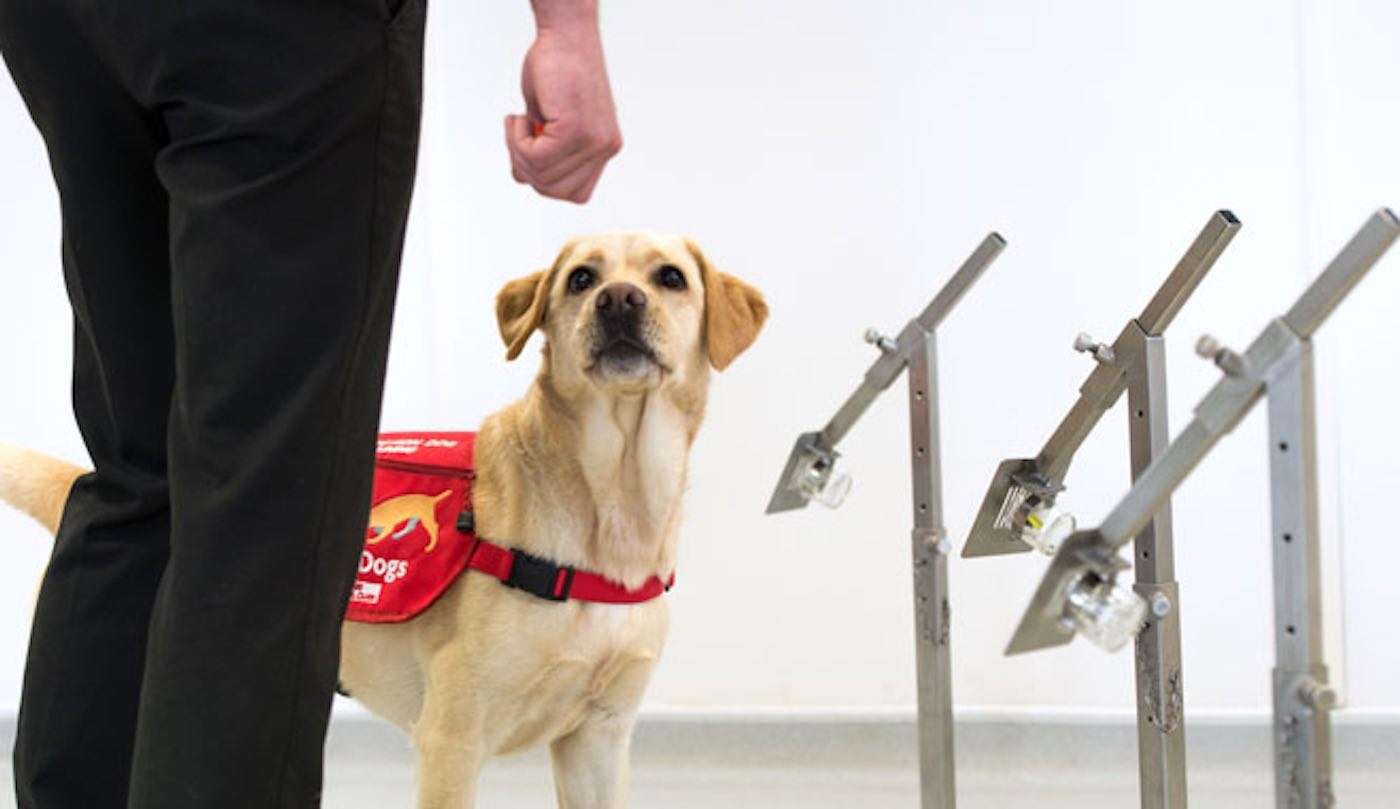For years, dogs have been helping to keep humans safe by sniffing out narcotics, improvised explosive devices, pests, natural disasters, cancer, Parkinson's disease, and now—yes, you guessed it—the novel coronavirus.
A medical charity in England that has successfully trained dogs to detect malaria is now attempting to train man's best friend to identify the smell of COVID-19.
The charity, called Medical Detection Dogs, is partnering with the Tropical Medicine and Hygiene School in London along with Durham University to begin trialing dogs for the job. Dr. Claire Guest, a behavioral psychologist and principal member of the charity told CTV News that there is "absolutely no reason why a dog can't detect the virus."
Describing its approach as "rigorously scientific," Medical Detection Dogs has produced more than a dozen peer-reviewed papers during their work training dogs to smell and detect cancer, Parkinson's disease, and most recently malaria, the people behind which have reunited to give COVID a shot.
"The aim is that dogs will be able to screen anyone, including those who are asymptomatic and tell us whether they need to be tested. This would be fast, effective and non-invasive and make sure the limited NHS testing resources are only used where they are really needed," writes Guest on the Medical Detection Dogs website.
"We know that other respiratory diseases like COVID-19, change our body odor so there is a very high chance that dogs will be able to detect it. This new diagnostic tool could revolutionize our response to COVID-19 in the short term, but particularly in the months to come, and could be profoundly impactful."
According to CTV News, who 4 years ago covered the enterprising Kiwi—a Golden Retriever being trained to sniff out disease—Medical Detection Dogs has previously worked with prostate cancer and the detection rate was catalogued at as high as 80%.
Professor Steve Lindsay at Durham University says: "If the research is successful, we could use COVID-19 detection dogs at airports at the end of the epidemic to rapidly identify people carrying the virus. This would help prevent the re-emergence of the disease after we have brought the present epidemic under control."
This is just one of many positive stories and updates that are coming out of the COVID-19 news coverage this week. For more uplifting coverage on the outbreaks, click here.
Multiply The Good By Sharing The Pawesome News With Your Friends On Social Media…










Be the first to comment